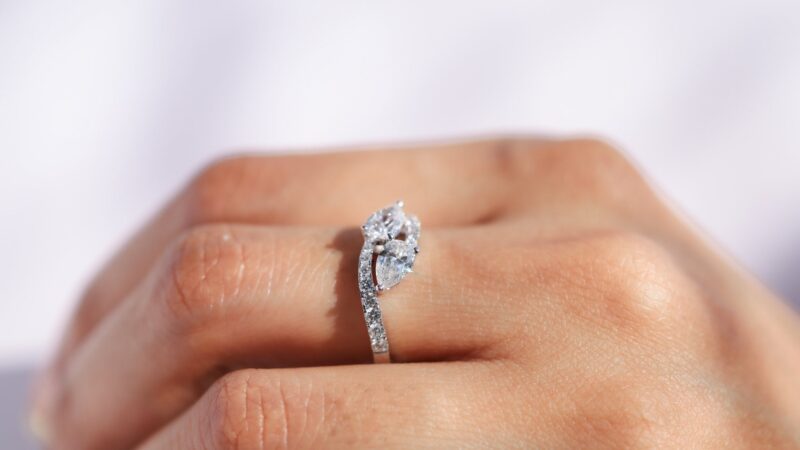Luxury Brands: The Ultimate Symbol of Prestige and Craftsmanship

Luxury brands represent more than just products; They embody a lifestyle of prestige, exclusivity and flawless craftsmanship. Regardless of whether it is a slim Louis Vuitton bag, a timeless Rolex watch or the unmatched sophistication of Chanel, luxury brands have become synonymous for high status, superior quality and sophisticated taste.
Luxury brands are often targeted by counterfeiters, and while holding an authentic piece means prestige and exclusivity. Many buyers are attracted by 레플리카사이트 imitations that lack the quality and craftsmanship of the originals.
But what exactly does a luxury brand define? And why did people around the world continue to participate in these high-end labels? Let us immerse yourself in the world of luxury brands and examine what you highlight on the competition market.
What defines a luxury brand?
Luxury brands differ from everyday consumer goods due to their commitment to quality, exclusivity and legacy. These brands provide products that are often handmade and the materials are taken from the best locations in the world. But it’s not just about the product – Luxury brands sell an experience, a feeling of exclusivity and a symbol of the status.
The development of luxury brands over time
The concept of luxury is not new. For centuries, people have been looking for rare and expensive objects to mean prosperity and power. Luxury was always bound by the status of old royal families who commission tailor -made jewelry in the aristocrats of Europe who carry the best silk clothing.
In modern times, luxury brands developed to take care of a global audience and combine tradition with innovation. Brands such as Louis Vuitton, Chanel and Gucci have a deep story, but constantly borders with state -of -the -art designs and marketing strategies.
The most important properties of luxury brands
Superior quality
Luxury brands are known for only using the best materials and craftsmanship. Regardless of whether it is a handbag, a piece of jewelry or a car, luxury items are built for the duration. This focus on quality allows you to take off by mass marker goods.
Exclusivity
Another license plate for luxury brands is their exclusivity. Limited production runs, exclusive collections and cooperation with TOP designers help to create a feeling of scarcity that drives demand. Ownership of a luxury article often feels like belonging to an elite club.
High-price strategy
Luxury brands use the pricing to your advantage. Their high price points reflect the superior materials and craftsmanship, but also serve as a barrier to ensure that only a few of these products can afford. This strategy improves the perception of exclusivity.
Inheritance and craftsmanship
Many luxury brands have a rich story that contributes to their attractiveness. Brands like Hermès and Rolex have been around for over a century, and their stories about craftsmanship and inheritance are deeply intertwined with their brand identity.
Top luxury brands of the world
When it comes to the climax of the luxury, some brands risen through the rest:
Louis Vuitton
Louis Vuitton is known for its iconic monogram and innovative design and is a leader on the luxury market. It is a name from bags to finished fashion that swings with luxury lovers worldwide.
Chanel
The timeless elegance of Chanel is contained in its classic products, such as the small black dress and perfume No. 5. Chanel remains a symbol of Paris chic and sophistication.
Hermes
Hermès is famous for his Birkin and Kelly bags, both of whom have long waiting lists. This French brand is a synonym for exclusivity and tradition.
Rolex
The name Rolex is practically synonymous with luxury watches. With its precision technology and its elegant design, a Rolex is more than one watch. It is an investment.
The attraction of luxury brands
Status symbol
Luxury brands are often bought as status symbols. Wearing a luxury brand is a way to signal prosperity, success and social position.
Feeling of exclusivity and privileges
There is an undeniable thrill to own something that not everyone can have. Luxury brands are characterized when they feel something special, be it through limited expenses or personalized services.
Unaffected customer experience
From personalized shopping experiences to exclusive events, luxury brands know how to spoil your customers. The customer experience is as luxurious as the products themselves.
Luxury brands and consumer psychology
The emotional connection
People don’t just buy luxury products – they buy in the feelings associated with them. If you have a luxury item, you feel powerful, refined or reached.
The role of social status
Luxury brands often use the desire for social recognition. Wearing a luxury brand can strengthen a person’s social status and confirm their identity in the eyes of others.
The power of brand identity
Luxury brands have a strong identity that goes beyond their products. They often stand for a certain lifestyle or a number of values that can be resonance with consumers.
How to market luxury brands themselves
Limited editions and cooperation
In order to keep your products desirable, luxury brands often publish limited collections or work with renowned designers and celebrities.
Prominent notes and influencers
Prominent notes have long been a tactic in luxury brand marketing. Today, influencers also play an important role in promoting these brands for new target groups, especially via social media platforms such as Instagram.
The role of digital media and social networks
With the advent of digital media, luxury brands adapt their strategies. They not only concentrate on experiences in business, but also invest strongly in digital advertising, online exclusive and social media marketing.
Challenges for luxury brands
Fake and brand dilution
One of the biggest challenges for luxury brands is counterfeiting. Fake products not only reduce the exclusivity of the brand, but also harm their reputation.
Sustainability and ethical procurement
In today’s world, consumers of sustainability and ethical practices are more conscious. Luxury brands have to adapt by focusing responsibly on sustainable production methods and the procurement of materials.
Adaptation to new consumer requirements
The luxury market continues to develop. Since younger generations become the main consumers of luxury goods, brands must remain relevant by taking on technology, inclusiveness and environmental responsibility.
Sustainability in luxury brands
The pressure towards ethical fashion
Many luxury brands use the trend of ethical fashion and ensure that their products are made with minimal environmental influences.
Transparency in supply chains
Consumers demand more transparency. Brands like Stella McCartney are leading by providing detailed information about where and how your products are manufactured.
The future of sustainable luxury
The future of luxury will probably see a further focus on sustainability, with more brands commit to reducing their CO2 footprint and promoting the circular fashion.
The future of luxury brands
Technology and innovation on the luxury market
While the technology continues to progress, luxury brands are integrating augmented reality (AR), artificial intelligence (AI) and blockchain technology into their shopping experiences to offer something really unique.
Emerging countries: China and India
Countries such as China and India become important actors on the luxury market, whereby their growing middle and upper classes are promoting demand for high-end goods.
The effects of the global economy
Luxury brands are not immune to global economic changes. Revessions, inflation and currency fluctuations can all affect the sales and strategies of luxury companies.
Diploma
Luxury brands are more than just expensive articles – they represent a lifestyle, status and experience that are striving for consumers around the world. While you develop trends, technology and consumer requirements, luxury brands on the global market will remain a crucial force.





